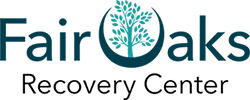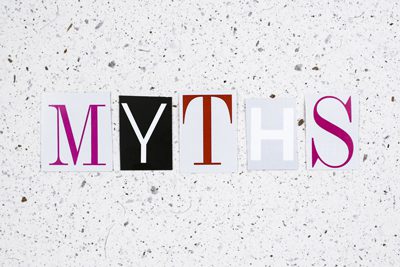In order to address the ways we deceive ourselves about sobriety and what it requires, consider a few of these common myths about sobriety.
Sobriety requires self-care and diligent self-honesty. If we don’t take steps toward identifying the underlying emotional disturbance, our addiction can shapeshift, leading us to substitute one addiction for another. Sustaining sobriety requires more than just cessation of drug and/or alcohol use.
7 Myths of Getting Sober
Myth #1: Addiction requires a substance.
If you are just getting clean, chances are that you naturally interchange cessation of substance with sobriety. However, behavioral addiction can be just as powerful. Brain image researching shows that the same parts of the brain light up in a person who suffers from behavioral addictions, such as compulsive spending, sexual addiction, or gambling, as do when a person uses an addictive substance.
In both substance and behavioral addiction, the substance or behavior becomes associated as a reward. This reward dulls the reality of the underlying problem or emotional trauma.
Myth #2: I just need to detox and then I’ll be fine.
Thinking that ridding yourself of a substance will free you from addiction is avoiding the underlying issue that led you to becoming addicted in the first place. Eliminating the physical presence of a substance is definitely a major step, but it is not the cure.
Myth #3: Addiction is a choice.
Believing addiction is a choice puts you at risk of relapsing. This myth implies that people who suffer from addiction lack discipline or self-control—but that is a major misconception. Following this belief in sobriety could lead you to thinking as long as you are functioning, you don’t have a problem.
Addiction is part genetic predisposition and part outside influences, such as upbringing, family life, social circles, and the like. While, statistically, there are some people who can use drugs recreationally, recovery is not an act of supreme willpower.
Addiction is a chronic, debilitating disease that requires attention. People do not just decide to sacrifice a healthy life of progression because they want to use a drug. People who become dependent on substances or behavior do so in order to escape or cope.
Over time, the use of substances as a coping mechanism can rewire the brain, causing an initial desire to become a need. At this point, professional and/or medical attention can be necessary for health and well-being.
Further, as long as we conflate addiction with choice, we remain in danger of attaching labels to people. This causes further stigmatization of addiction and those affected.
Myth #4: As long as I stay away from illegal substances, I won’t have a problem.
With dependency on prescription pills increasing, along with the number of overdoses relating to prescription drugs, understanding that addiction is mutable is essential to sustaining sobriety.
One of the ways to safeguard against trading one substance for another is to be vigilant with what you do and do not allow yourself to use. For instance, when I get a cold, I stick to ginger root and other herbal remedies before I snag a box of cold medicine off the shelf.
I know that a buzz from Mucinex DM will trigger a desire for stimulants. In addition, using natural remedies for illness increases a connection with nature and her natural healing powers. It feels good to appreciate roots and herbs.
Myth #5: Getting sober will make everything better.
Unfortunately, there is nothing in life that is a cure-all. Expecting instant perfection can be a recipe for relapse. It’s important to be kind to yourself, to be patient with yourself, and to allow yourself the tools you need in order to improve yourself.
One of the characteristics of a person prone to addiction is low self-worth. If you do not value yourself, you will not care for yourself. And if you don’t care for yourself, your self-value will continue to decrease—a vicious cycle.
Start small. Try to do one thing a day. Sky-high expectations can be just as debilitating as low expectations.
Myth #6: My drug of choice is A. As long as I stay away from A, I won’t have any problems.
This is perhaps one of the most rapidly occurring self-deceptions. As a woman in recovery from methamphetamine addiction, I know this self-illusion too well.
After I got clean, I began to drink wine on a nightly basis. In comparison to the extreme demonization of meth in the public eye, alcohol seemed too tame to consider a problem. But then I started waking up day after day to a pounding headache, queasy stomach, and a few text messages I felt ashamed of sending. I told myself, at least I’m not using meth.
The problem with this self-eluding logic is that I was avoiding having to look within at what I was actually trying to escape—loneliness, lost love, boredom, and, at the root, realizing that crawling out of the self-destructive space I’d been living in for more almost a decade was going to involve more work than I believed I was capable of.
Doing the real work hurts. Healing hurts. But it’s the only way to longevity in sobriety.
Myth #7: Relapse equals failure.
So, you slipped up? That does not mean you are doomed to a plunging back down to the deepest depths of addiction. Relapse is a part of recovery. Forgive yourself and allow yourself to return to the current place in recovery.
The key is honesty. Know your triggers. You are your best hypnotist. Recovery is an active process. Dormancy can lead to complacent behavior. Believe in your treatment plan and remember that at the end of the day, you are human, and humans make mistakes.



